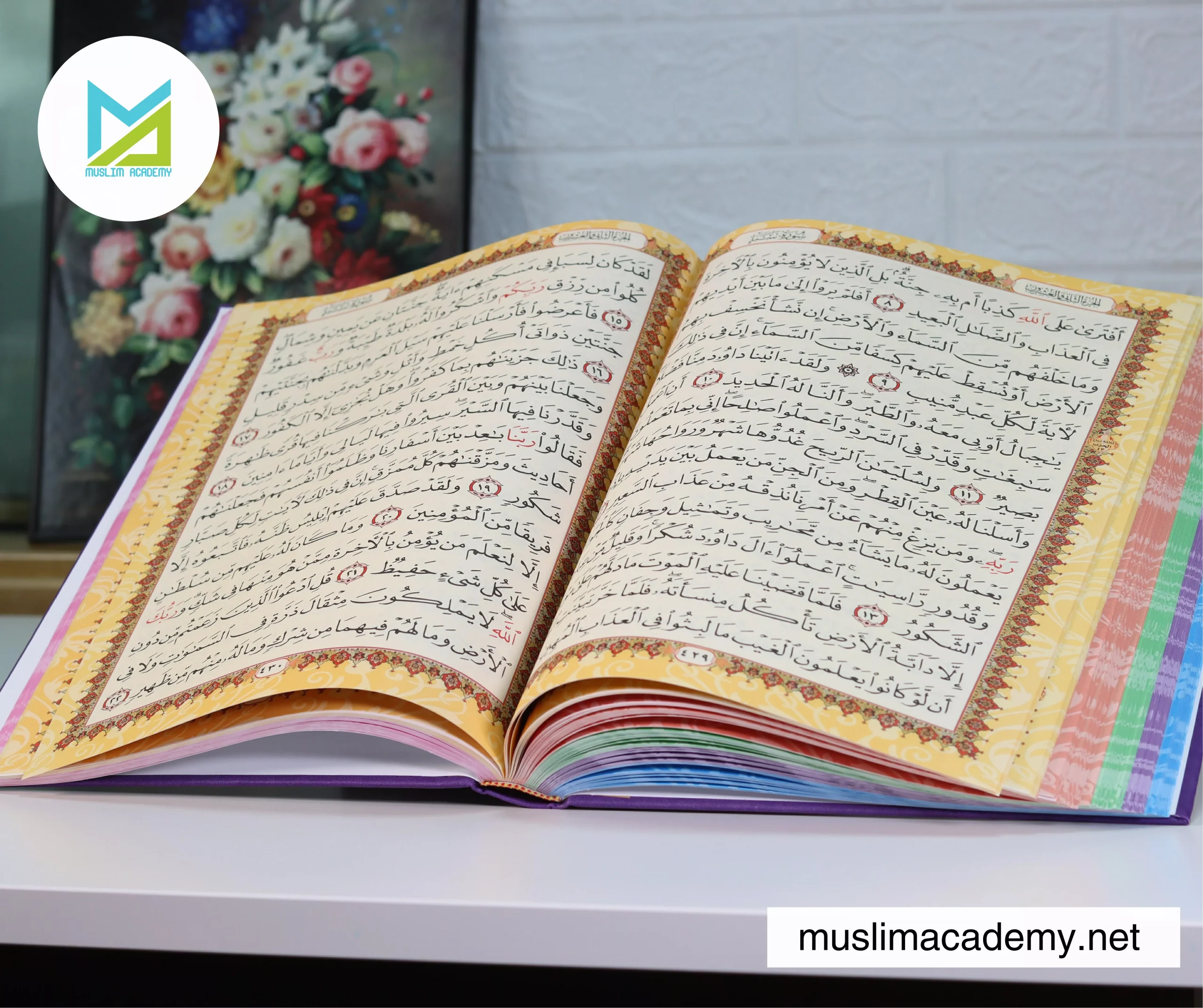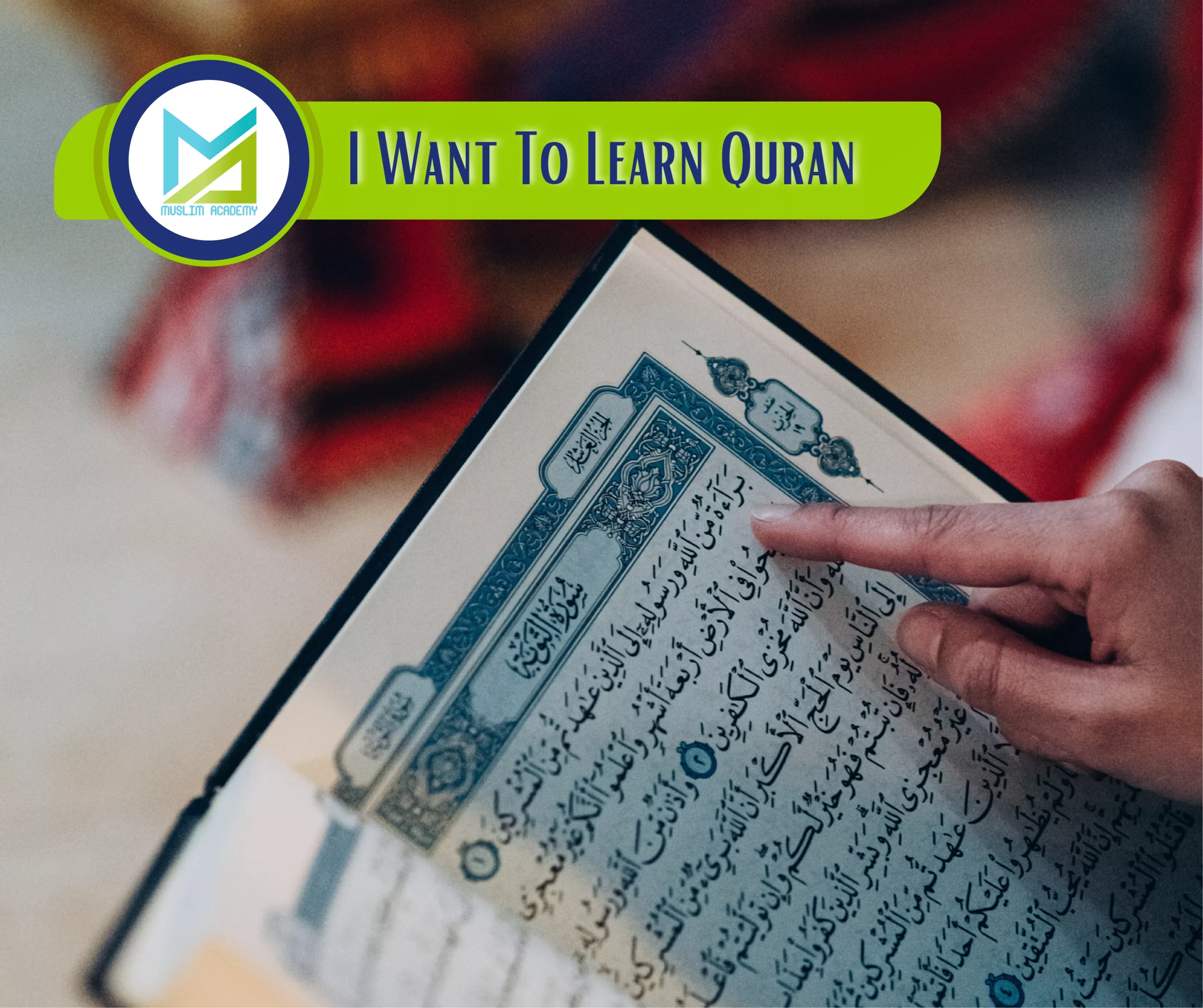Start Online Quran Classes with Muslim Academy
https://muslimacademy.net/index.php/free-trial/
The desire to learn the Quran represents one of the most meaningful aspirations a Muslim can have, reflecting a sincere commitment to spiritual growth and religious understanding. When you say “I Want To Learn Quran with Muslim Academy,” you are expressing a profound intention that connects you to centuries of Islamic tradition and millions of fellow Muslims who have embarked on this transformative educational journey. This comprehensive guide will help you understand what Quranic learning involves, how to begin your studies effectively, and what to expect as you progress through different stages of Islamic education.
Understanding the Significance of Your Learning Intention
The statement “I Want To Learn Quran with Muslim Academy” carries deep spiritual and practical implications that extend far beyond simple academic pursuit. In Islamic tradition, the intention behind actions holds tremendous importance, and your sincere desire to learn the Quran represents a form of worship that brings spiritual rewards even before formal learning begins. This recognition should inspire confidence and motivation as you begin your educational journey.
Learning the Quran involves multiple dimensions of study, including Arabic language skills, proper pronunciation and recitation techniques, memorization when desired, and understanding of meanings and interpretations. Each of these aspects contributes to a comprehensive Islamic education that enhances both religious practice and personal spiritual development.
The Quran serves not only as a religious text but also as a guide for ethical living, social relationships, and personal character development. When you commit to Quranic learning, you are choosing to engage with wisdom that has guided Muslim communities for over fourteen centuries, connecting yourself to a rich tradition of scholarship and spiritual growth.
Your learning journey will likely transform not only your religious knowledge but also your perspective on life, relationships, and purpose. Many students discover that Quranic study provides clarity, peace, and direction that extends far beyond their formal educational goals, enriching every aspect of their existence.
Assessing Your Current Knowledge and Setting Realistic Goals
Before beginning formal Quranic study, an honest assessment of your current knowledge level helps establish realistic goals and choose appropriate learning pathways. If you are completely new to Arabic and Islamic education, your journey will begin with fundamental alphabet recognition and basic pronunciation. Those with some background knowledge may be able to start with more advanced topics, such as Tajweed rules or memorization projects.
When you declare “I Want To Learn Quran with Muslim Academy,” consider what specific aspects of Quranic education most appeal to you or align with your spiritual objectives. Some students prioritize developing beautiful recitation skills, while others focus on memorization or seek deeper understanding of meanings and interpretations. Clarifying your primary goals helps guide your choice of instructors, programs, and study methods.
Setting both short-term and long-term objectives provides structure and motivation for your learning journey. Short-term goals might include mastering Arabic alphabet recognition, learning to recite specific short chapters, or understanding basic Tajweed principles. Long-term aspirations could involve memorizing significant portions of the Quran, achieving fluency in Arabic reading, or developing sufficient knowledge to teach others.
Realistic timeline expectations prevent frustration and maintain motivation throughout your studies. Quranic learning is traditionally viewed as a lifelong pursuit rather than a course to be completed quickly, and embracing this perspective helps maintain patience and persistence during challenging periods.
Choosing the Right Learning Environment and Method
The modern landscape of Islamic education offers numerous options for pursuing Quranic study, each with distinct advantages and considerations. Traditional classroom settings in mosques or Islamic centers provide community support, direct instructor interaction, and structured learning environments that many students find beneficial for maintaining focus and motivation.
Online learning platforms have revolutionized access to quality Quranic education, making it possible to learn from qualified instructors regardless of geographical location. When you think “I Want To Learn Quran with Muslim Academy,” but face limitations in accessing local Islamic education, online options can provide excellent alternatives that maintain educational quality while offering greater scheduling flexibility.
Private tutoring, whether in-person or online, provides maximum personalization and individual attention but typically requires greater financial investment. This option works particularly well for students with specific learning needs, challenging schedules, or advanced educational objectives that require specialized instruction.
Self-study approaches using books, applications, and multimedia resources can supplement formal instruction or serve as primary learning methods for highly motivated independent learners. However, guidance from qualified instructors remains valuable for ensuring proper pronunciation, answering questions, and providing motivation and accountability.
Developing Effective Study Habits and Learning Strategies
Success in Quranic education depends heavily on establishing consistent study habits that support gradual but steady progress over time. Daily practice, even for brief periods, proves more effective than sporadic, lengthy study sessions. Most successful students develop routines that include both formal instruction time and independent practice periods.
Creating a dedicated study environment enhances focus and maintains reverence for the sacred text. This space should be clean, quiet, and free from distractions, helping you develop appropriate mindfulness and respect during your Quranic studies. Many students find that specific times of day, particularly early morning hours, provide optimal conditions for concentrated learning and spiritual reflection.
When you commit to the goal “I Want To Learn Quran with Muslim Academy,” developing patience with yourself becomes essential for long-term success. Quranic learning involves mastering complex skills that require time, practice, and gradual development. Comparing your progress to others or expecting rapid advancement often leads to frustration and discouragement.
Active engagement with the material through writing practice, recitation rehearsal, and regular review sessions reinforces learning and improves retention. Many students maintain learning journals where they record new vocabulary, practice notes, and personal reflections that enhance their educational experience.

Overcoming Common Challenges and Obstacles
Every student who says “I Want To Learn Quran with Muslim Academy” encounters difficulties that can threaten their educational progress and motivation. Pronunciation challenges represent one of the most common obstacles, particularly for students whose native languages do not include sounds found in Arabic. Patient practice with qualified instruction gradually overcomes these difficulties, but students must maintain realistic expectations and persistent effort.
Time management presents another frequent challenge, as busy modern lifestyles can interfere with consistent study schedules. Successful students learn to integrate Quranic study into their daily routines, finding creative ways to practice during commutes, breaks, or other available periods throughout their days.
Feeling overwhelmed by the scope of Quranic learning can discourage beginners who underestimate the time and effort required for meaningful progress. Breaking large goals into smaller, achievable steps helps maintain motivation while providing regular opportunities for success and celebration.
Lack of immediate visible progress can also challenge student motivation, particularly during early learning stages when fundamental skills are being developed. Keeping records of advancement, celebrating small victories, and maintaining perspective on long-term objectives helps students persevere through periods when progress seems minimal.
Building Support Networks and Community Connections
Quranic learning benefits significantly from community support and social connections with fellow students and committed Islamic educators. Joining study groups, participating in mosque programs, or connecting with online Islamic learning communities provides encouragement, accountability, and shared wisdom that enhances individual educational efforts.
Family support can play a crucial role in sustaining long-term commitment to Quranic education. When you express “I Want To Learn Quran with Muslim Academy,” involving family members in your learning journey through shared practice time, progress discussions, or family Islamic activities creates additional motivation and reinforcement for your educational goals.
Mentorship relationships with advanced students or experienced Islamic educators provide guidance, inspiration, and practical advice that accelerates learning progress while helping avoid common pitfalls and mistakes. These relationships often develop naturally within Islamic educational communities and can provide lasting benefits that extend beyond formal educational periods.
Online forums, social media groups, and virtual Islamic learning communities connect students with peers and educators worldwide, creating support networks that transcend geographical boundaries while providing access to diverse perspectives and experiences in Quranic learning.
Integrating Technology and Traditional Methods
Modern Quranic education successfully combines traditional Islamic teaching methods with contemporary technological tools that enhance learning effectiveness and accessibility. When you decide “I Want To Learn Quran with Muslim Academy,” you have access to resources that previous generations of students could not imagine, while still benefiting from time-tested pedagogical approaches.
Smartphone applications provide convenient access to Arabic text, audio recitations, pronunciation guides, and interactive learning exercises that support daily practice and review. These tools make it possible to maintain contact with your Quranic studies throughout busy days when formal study time might not be available.
Digital recording capabilities allow you to practice recitation, receive feedback from instructors, and track your progress over time. This technology supports the repetitive practice essential for developing proper pronunciation and memorization skills while providing flexibility that accommodates diverse learning schedules.
Online platforms connect you with qualified instructors and fellow students regardless of geographical limitations, creating learning communities that might not be possible through traditional local resources alone. This connectivity expands educational opportunities while maintaining authentic Islamic instruction and community support.

Measuring Progress and Celebrating Achievements
Recognizing and celebrating progress maintains motivation throughout your Quranic learning journey and provides positive reinforcement for continued effort and dedication. When you first think “I Want To Learn Quran with Muslim Academy,” establishing methods for tracking advancement helps maintain focus and provides evidence of improvement that might not be immediately apparent during daily practice.
Regular recitation assessments with qualified instructors provide objective feedback on pronunciation accuracy, Tajweed application, and overall recitation quality. These evaluations help identify areas needing additional practice while celebrating improvements and achievements that demonstrate your advancing skills.
Memorization milestones offer clear indicators of progress for students pursuing Hifz goals. Completing individual verses, short chapters, or longer passages provides concrete achievements that can be shared with family and community members who support your educational journey.
Comprehension development can be measured through discussions with instructors, written reflections, and practical application of Islamic teachings in daily life. This aspect of progress may be less immediately visible but often proves most meaningful for long-term spiritual development and religious practice.
Maintaining Long-Term Commitment and Spiritual Growth
Sustaining long-term commitment to Quranic education requires balancing academic achievement with spiritual development, recognizing that Islamic learning serves both intellectual and devotional purposes. The goal “I Want To Learn Quran with Muslim Academy” should encompass not only skill acquisition but also character development, spiritual purification, and a deeper connection with Islamic faith and practice.
Regular reflection on your motivations, progress, and spiritual development helps maintain perspective and renews commitment during challenging periods. Many students find that journaling about their learning experiences, insights gained, and personal growth achieved through Quranic study provides valuable motivation and self-awareness.
Connecting your Quranic learning with daily Islamic practice through prayer recitation, reflection during religious observances, and application of Quranic guidance in personal decision-making helps integrate your education with lived spiritual experience. This integration makes learning more meaningful while demonstrating the practical value of your educational investment.
Seeking advanced learning opportunities as your skills develop ensures continued growth and prevents stagnation in your Islamic education. This might involve pursuing specialized studies, teaching opportunities, or scholarly research that allows you to contribute to the broader Islamic educational community.
Conclusion: Embracing Your Sacred Educational Journey
The desire expressed in “I Want To Learn Quran with Muslim Academy” represents the beginning of a transformative journey that can enrich every aspect of your life while connecting you to the global community of Muslims committed to Islamic learning and spiritual development. Your success in this endeavor depends not only on choosing appropriate educational resources and maintaining consistent effort but also on approaching your studies with the reverence, humility, and dedication that befit engagement with sacred scripture.
Remember that every expert was once a beginner, and every accomplished reciter started with the same basic steps you are taking now. Embrace your learning journey with confidence, patience, and trust in Allah’s guidance, knowing that sincere effort in Quranic education brings both worldly knowledge and spiritual rewards that extend far beyond the practical skills you will develop along the way.
The path ahead may present challenges and require significant commitment, but the rewards of Quranic learning – increased spiritual awareness, deeper Islamic understanding, stronger community connections, and enhanced religious practice – make this journey one of the most valuable investments you can make in your personal and spiritual development.
